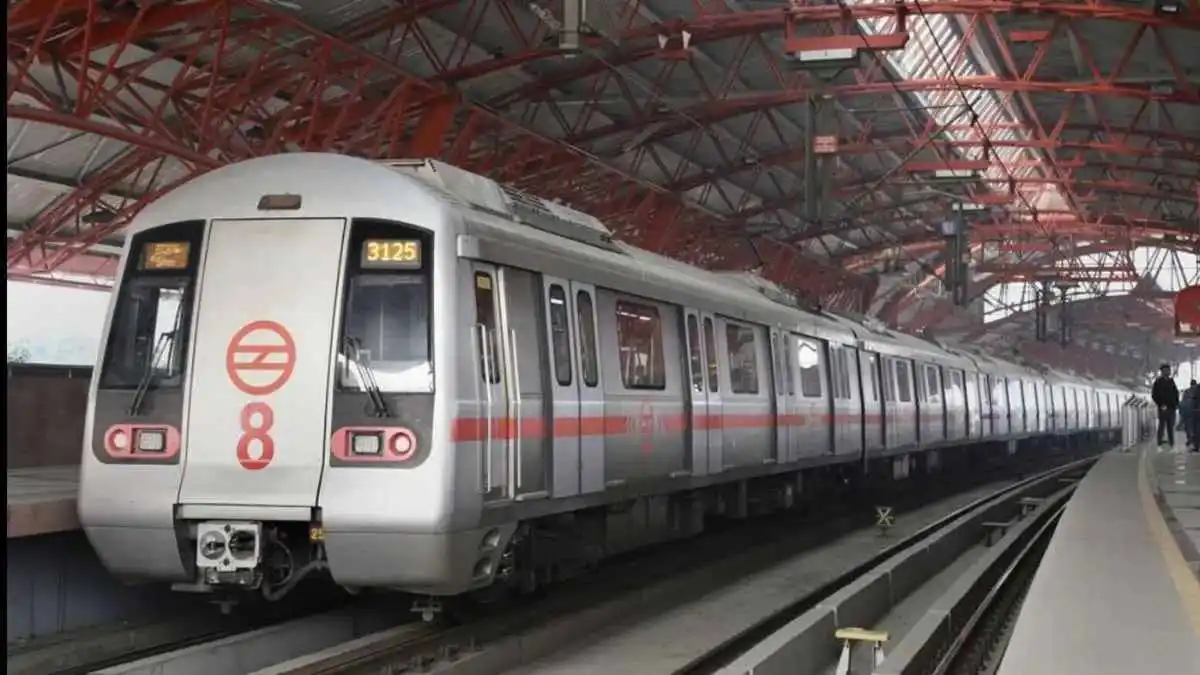To ease the capital’s urban mobility challenges, the Delhi Metro Rail Corporation (DMRC) has rolled out a first-of-its-kind integrated digital travel solution that aims to tackle one of the most persistent issues plaguing metro users—first and last-mile connectivity.
The newly upgraded ‘DMRC Sarthi-Momentum 2.0’ mobile application now allows commuters to book metro tickets, bike taxis, and auto-rickshaws in a single transaction, potentially transforming the daily commuting experience for lakhs of residents across the National Capital Region. The application, developed in partnership with Autope Payment Solutions Ltd, represents a major shift in how public transport services are accessed, eliminating the need for multiple apps or platforms to complete a single journey. This effort is more than just a tech upgrade; it is an attempt to bring order and convenience to the often-disjointed last-mile commute in India’s capital, notorious for its traffic bottlenecks and patchy connectivity beyond metro exits.
According to DMRC officials, the app uses geolocation to suggest the nearest metro stations and offers real-time options for connecting bike taxis or auto-rickshaws based on the commuter’s destination. If the last-mile destination lies within walking distance, the app intelligently omits unnecessary suggestions. A walking navigation feature is also being readied, underscoring the broader vision to make travel both time-efficient and sustainable.
What stands out is the emphasis on inclusivity and women’s safety. DMRC has onboarded partners such as Rapido for general last-mile connectivity and SheRyds—a women-led startup offering bike taxi services exclusively for female commuters. This is a significant step towards gender-sensitive urban transport, a dimension often overlooked in infrastructure projects. By encouraging women entrepreneurs and offering tailored mobility options for women, the metro authority is making strides toward building a more equitable public transport ecosystem.
The app’s integrated services allow users to book a bike or auto ride to their origin metro station and arrange a second ride before they alight at their destination station, ensuring continuity of travel without interruptions. For commuters, this translates to a single window of convenience, faster transit, and potentially lower costs as the service becomes increasingly competitive and widespread.
From an urban sustainability perspective, DMRC’s digital overhaul comes at a time when Indian cities are under increasing pressure to curb vehicular congestion and reduce carbon emissions. By nudging commuters away from private vehicle usage and towards shared, efficient mobility solutions, the app aligns with the broader goals of decarbonising city transport and promoting greener infrastructure. If scaled successfully and integrated with other smart transport initiatives, this model could offer a replicable framework for other metros in the country grappling with similar mobility gaps.
DMRC’s managing director reiterated the agency’s commitment to accessible and climate-conscious transportation, stating that the new initiative is designed not just to boost ridership but also to make city travel reliable and inclusive. While the long-term impact will depend on user adoption and operational reliability, the effort sends a strong message: the future of Indian urban commuting lies in smart, integrated, and sustainable solutions.
With millions relying on the metro for daily travel, this intervention could reshape how residents experience public transport in Delhi. If implemented effectively, it marks a decisive step toward a more connected, less polluting, and commuter-friendly city.


